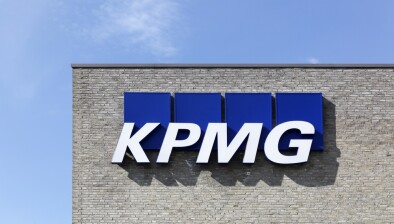KPMG: Social class is the biggest barrier to accountancy career progression

Socio-economic background has the strongest effect on an individual’s accountancy career progression, compared to any other diversity characteristic, according to new research published by KPMG UK.
In the biggest ‘progression gap’ analysis ever published by a business, experts from the Bridge Group analysed the career paths of over 16,500 partners and employees at KPMG over a five-year period. The team examined the average time it took individuals to be promoted, looking at their gender, ethnicity, disability, sexual orientation as well as socio-economic background.
The data showed that socio-economic background, measured by parental occupation, had the strongest effect on how quickly an individual progressed through the firm. Individuals from lower socio-economic backgrounds took on average 19% longer to progress to the next grade, when compared to those from higher socio-economic backgrounds.
The study is the latest advancement by KPMG to deepen understanding of social inequalities in the workplace, while sharing its insights with the wider business community. In 2021 it became the first organisation to report socio-economic background pay gaps and committed to increase the number of its leaders from low socio-economic backgrounds to 29% by 2030. A quarter of KPMG’s partners (25%) now come from low socio-economic backgrounds, up from 23% last year.
Nik Miller, chief executive at the Bridge Group, said: “Driving greater social equality is the defining societal and economic challenge of our time. There remains a proven link between someone’s social background and their educational and employment outcomes and social inequality is estimated to cost the UK £39 billion per year. It is exacerbating lower levels of productivity, poor mental health, and diminishing people’s life expectancy.
“Progression is one of the truest indicators of inclusion in an organisation, across all and any diversity characteristics. KPMG’s research is pioneering, and we commend the firm for its leading-edge approach. The more we can highlight and understand the impacts of socio-economic background, including how it affects progression, the more we can create more equal outcomes for all. Talent and productivity must always be the basis for hiring and progression, and certainly prioritised over background.”
Jon Holt, chief executive of KPMG in the UK, added: “This study is pioneering in its scope, and I hope adds value and rigour to the debate around social mobility. As a firm these insights are enabling us to take targeted action and we are publishing our findings so other organisations can draw insights from them and use it as a blueprint to measure and address barriers in their own businesses.
“Socio-economic background is complex and emotive. It requires us to confront how our upbringing shapes the opportunities we have access to later in life. But as businesses we need to lean into this discomfort if we are to make progress. Career advancement should be about realising potential, and not someone’s background or ‘polish’.”
The research has enabled the firm to pinpoint the bottlenecks employees face at different points in their career and take additional action. It found that its senior and junior colleagues are its most socio-economically diverse cohorts, but middle management grades are comparatively less diverse, suggesting colleagues from a low socio-economic background face a bottleneck as they try to progress to middle-management roles.
It also revealed that as people became more senior, the trend reversed. Those from lower socio-economic backgrounds who were promoted from director to partner actually progressed more quickly, compared to higher socio-economic background.
This complete reversal of the progression gap between director and partner level mirrors the findings of KPMG’s socio-economic background pay gaps analysis, published in 2021 which revealed that the socio-economic background diversity of its workforce was ‘hourglass’ in shape.
Using the insight from the data, the firm is launching a targeted plan to:
- Review the firm’s approach to work allocation, which we know plays a vital role in progression readiness by providing stretching, developmental opportunities which bolster an individual’s expertise. In the coming year we will be looking to see what more we can do to augment our current skills matching technology.
- Enhance the data insights relating to the progression of the firm’s talent, using new reporting technology which will enable employee data to be analysed in an intersectional way. This will provide detailed insights which will measure how effectively new interventions put in place by the firm fully support all colleagues.
- Tackle the bottleneck through piloting a new promotion readiness programme designed to support individuals at a manager grade, who are from historically underrepresented groups and have been identified as ready for promotion in the near-term.







